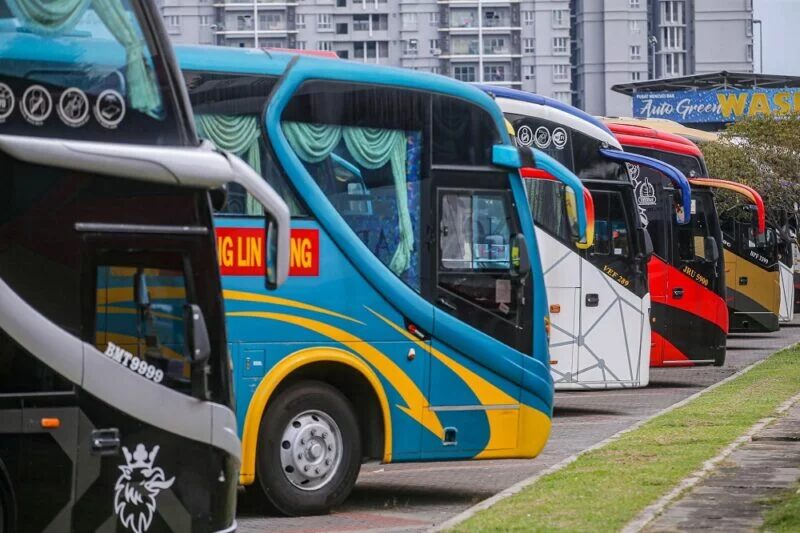The Kedah Road Transport Department (JPJ) has warned express bus drivers not to drop off passengers in unauthorised areas.
According to its director, Stien Van Lutam, express bus drivers caught committing the offence will be fined on the spot.
He added that so far, two violations have been detected during the Hari Raya Aidilfitri 2025 Special Operation, which was launched from 24 March to 8 April this year.
“JPJ personnel in disguise detected a 29-year-old bus driver who, while travelling from Ipoh to Sungai Petani, dropped off passengers in an unauthorised area or outside the bus terminal.
“Another 27-year-old express bus driver was also found committing the same offence while travelling from Alor Setar to Kelantan, in addition to overtaking on a double line,” he stated.
He remarked that dropping off passengers in prohibited areas not only endangers the passengers but also contributes to accidents and traffic congestion.
Meanwhile, Stien mentioned that the 14-day special operation involves 271 JPJ personnel throughout the state, whose leave has been suspended to ensure the smoothness and safety of road users, as well as in efforts to minimise the rate of accidents and fatalities due to road incidents.
He stated that the JPJ will continue to prioritise nine major offences, including failure to comply with speed limits, running red lights, overtaking in prohibited areas, driving in emergency lanes, and using mobile phones.
“Users returning to their hometowns are advised to remain patient while driving, not to let their emotions take over, and to ensure that their vehicles are in good condition before starting their journey to avoid any unwanted incidents,” he said.
